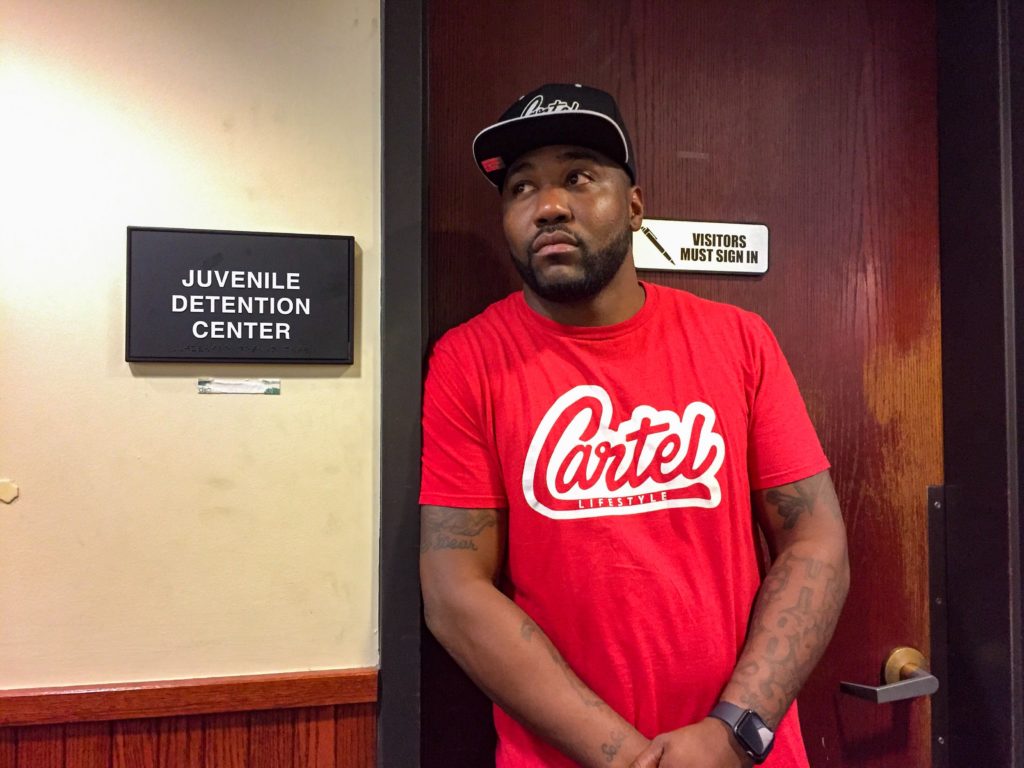
Last Thursday, Laura Munoz’s son turned 18. But she didn’t get to watch him blow out birthday candles or open any presents.
Munoz’s son is detained in the Davidson County Juvenile Detention Center, along with nearly 40 other teens.
“This is his first birthday away from us, and he hates it,” Munoz says.
As the coronavirus continues to spread outside its doors, the facility is taking extra precautions to keep its teens and staff healthy.
Jails, prisons and detention centers are closing their doors to outside visitors, so they won’t bring in the coronavirus. Officials worry that correctional facilities are particularly vulnerable to an outbreak, because of limited space for social distancing.
That means Munoz’s weekly visits with her son are on pause, indefinitely. For now, she’s making do with phone calls. But she says it’s not the same.
“You just want to see him physically, just to make sure he’s OK,” Munoz says. “Kids can tell you anything over the phone. But just to see his face and, you know, he’s walking OK, doesn’t haven’t any bruises, he hasn’t been into any confrontations and all. So it kind of took a toll on me.”
Since an employee tested positive last week, the detention center has been in COVID-19 mode. The company that manages the facility declined to comment for this story but has shared its six-page pandemic plan with WPLN News.
Staff members get their temperatures taken every day before they come in. One pod has been set aside as an isolation unit, in case anyone starts displaying symptoms. And the center has bulked up on food, Gatorade and personal protective equipment.
Visits, classes and group programs are on hold for the time being. But Kathy Sinback, the Juvenile Court administrator, says the kids — who range from 12 to 18 years old — are coping well.
“They have had a lot of parent support, which has been awesome,” Sinback says. “The parents have all been in contact with their youth and have expressed their concern and have told their kids, ‘You better wash your hands. You better be sanitizing. You better stay distant.’ And, what we’re hearing from our contractor is that that’s really working. The youth are listening to their parents.”
The detention center is allowing the teens to make extra calls home throughout the week, including video calls. Sinback says they’ve also stocked up on board games, video games and playing cards.
Youth in detention are already in a “highly stressful situation,” she says. The goal is to maintain as much normalcy as possible.
“We, as Juvenile Court, and the detention staff, are really their stand-in parents at this time,” Sinback says. “And so, just as parents are trying to help their kids process the state of the world right now, it’s even more important for detention personnel to do the same thing.”
Still, criminal justice reformers want to see more.
‘The Sense Of Isolation Has Got To Be Crushing’
Last month, advocates in 30 states wrote letters urging officials to release as many youth from detention as possible. Those advocates include Josh Spickler of Just City in Memphis, where at least one juvenile detention center employee has also tested positive.
He says the loneliness teens experience while in detention has only been exacerbated by the coronavirus.
“Without the contact with instructors and the contact with volunteers who often frequent these facilities, the sense of isolation has got to be crushing for some kids,” Spickler says.
Studies shows that a disproportionate share youth in detention have been diagnosed with a mental health disorder. Nearly all have experienced at least one trauma, such as abuse or community violence. And Spickler says keeping them away from loved ones can make matters worse.
“What we know about kids is that, you know, at this point in their lives, isolation is one of the worst things that they can struggle with,” Spickler says.
He concedes limiting contact with the outside might be the only way to protect staff, youth and volunteers from infection.
“But, yes,” Spickler adds, “that is all the more reason, I think, to only detain children as an absolute last resort.”
Nashville’s Juvenile Court says the number of youth in detention is much lower than normal. The court has sped up hearings so kids can go home sooner if they’re eligible for release. And judges are choosing not to grant arrest orders when possible.
The court says all of the teens still in detention face serious charges.
Laura Munoz’s son is supposed to find out next month if he’ll be transferred to the adult system, or if he’ll get to come home.
In the meantime, Munoz is telling him “that I love him, keep his head up, and that it’s never too late to change and go down the right path.”
And, like most moms these days, Munoz is also reminding her son to wash his hands every chance she gets.
Samantha Max is a Report for America corps member.

